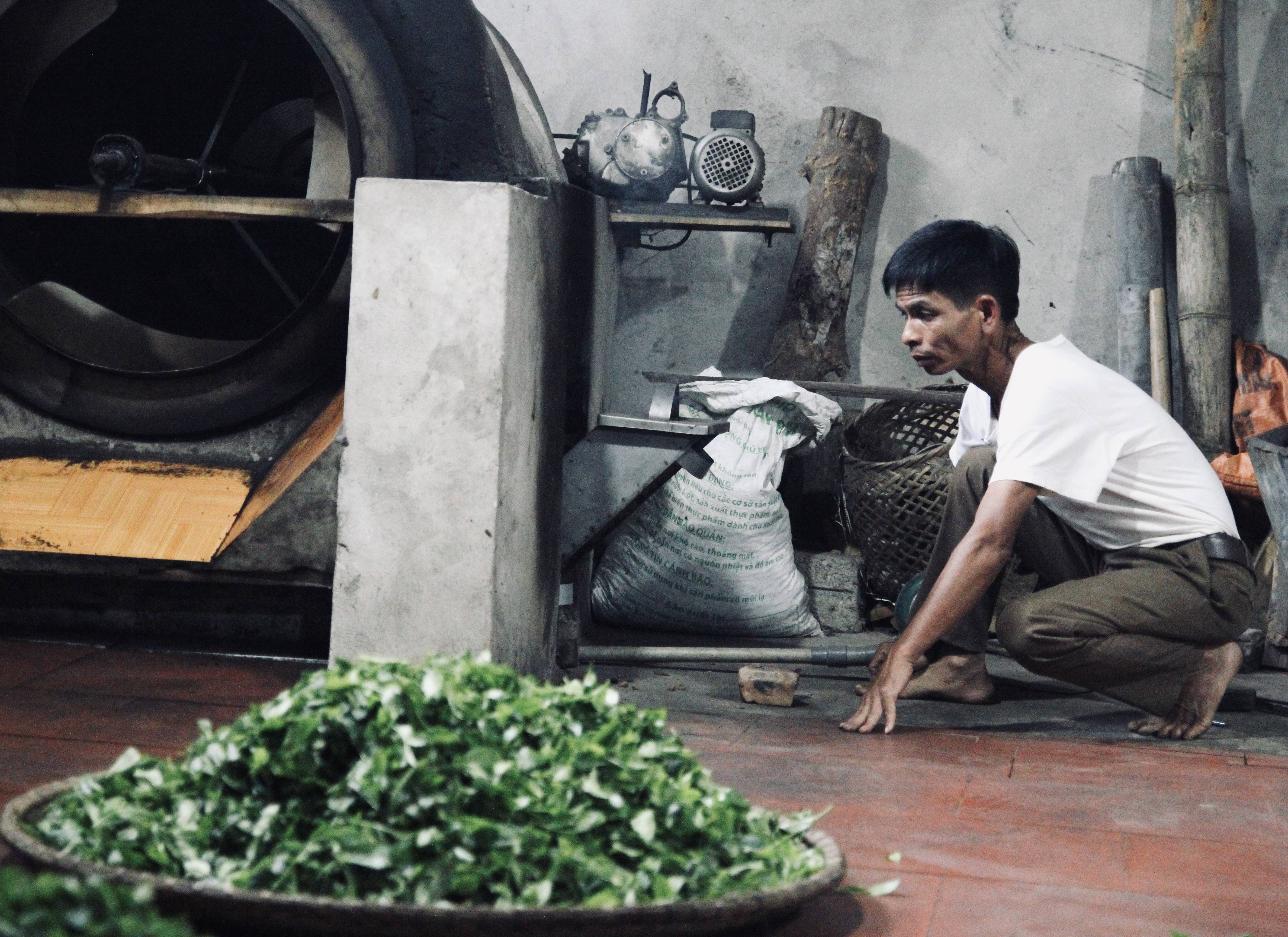
Tea is one of the vital agricultural industries in Thai Nguyen. However, the process of drying tea raises many concerns about its negative impact on the environment and the health of producers. On the other hand, a large amount of waste from agroforestry production is a potential, but currently redundant, fuel source. Facing the current situation, the VCBG biomass gasification technology of the EU SWITCH-Asia BEST project (Biomass Gasification Technology – Sustainable Energy Solution for Agri-Food Processing and Waste Management in Rural Areas of Vietnam) has demonstrated that it is possible to reduce production emissions, improve the health of producers and the community while simultaneously utilizing redundant waste sources. The story below is of Mr. Dang Ngoc Ha in Dinh Hoa district, Thai Nguyen province - one of the first households to apply VCBG technology in the family's long-standing tea processing tradition.
With 23,000 hectares of production area, more than 100 craft villages, 110 cooperatives and 43 processing enterprises, and about 91,000 self-processing production households, tea is considered the critical agricultural industry of Thai Nguyen, bringing income to thousands of families.
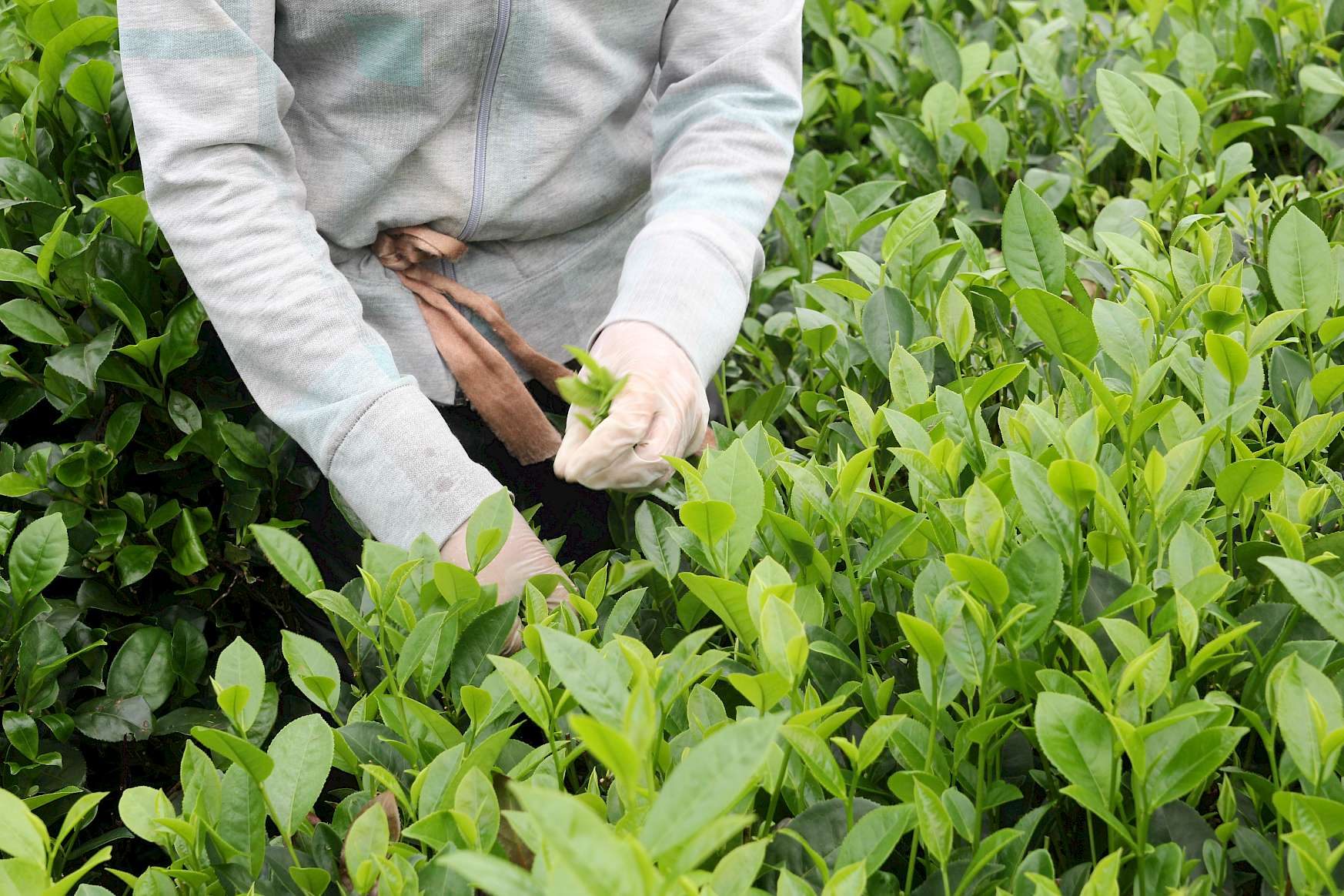
The tea-drying process, where processors use a suitable heat level to make the leaves dry slowly, is the most crucial step in transforming fresh tea buds into commercial dried tea for consumers. However, this stage releases a large amount of smoke, toxins, and carbon dioxide into the environment, especially when most local small-scale production households are still using wood-burning and charcoal heating devices. Additionally, smoke, dust, and toxins from burning wood also pose health risks to tea producers.
"When using firewood as fuel for drying tea with the traditional heating device, my eyes are always stinging because of direct contact with dust and smoke," said Mr. Dang Ngoc Ha, whose family has been making tea for more than 40 years in Dinh Hoa district, Thai Nguyen province.
"That would emit a lot of smoke, causing unsatisfactory finished products which would be discarded. The constant exposure to such an environment also causes coughing, breathing difficulties, stinging eyes when sleeping... which affects my family's health greatly", said Ha. Producing high-quality tea which is safer for producers and significantly less polluting is currently the main concern for Ha and many other tea producers in Thai Nguyen.
In 2018, Mr. Ha and his wife initially had access to continuous volumetric biomass gasification technology (VCBG) with the support of Oxfam in Vietnam and the Center for Creativity and Sustainability Study and Consultancy (CCS). His family is now operating VCBG equipment improved by the SWITCH-Asia BEST project.
Biomass gasification is a technology that burns biologically derived materials without oxygen to produce heat-generating syngas. Consequently, the amount of smoke and dust emitted is almost zero.
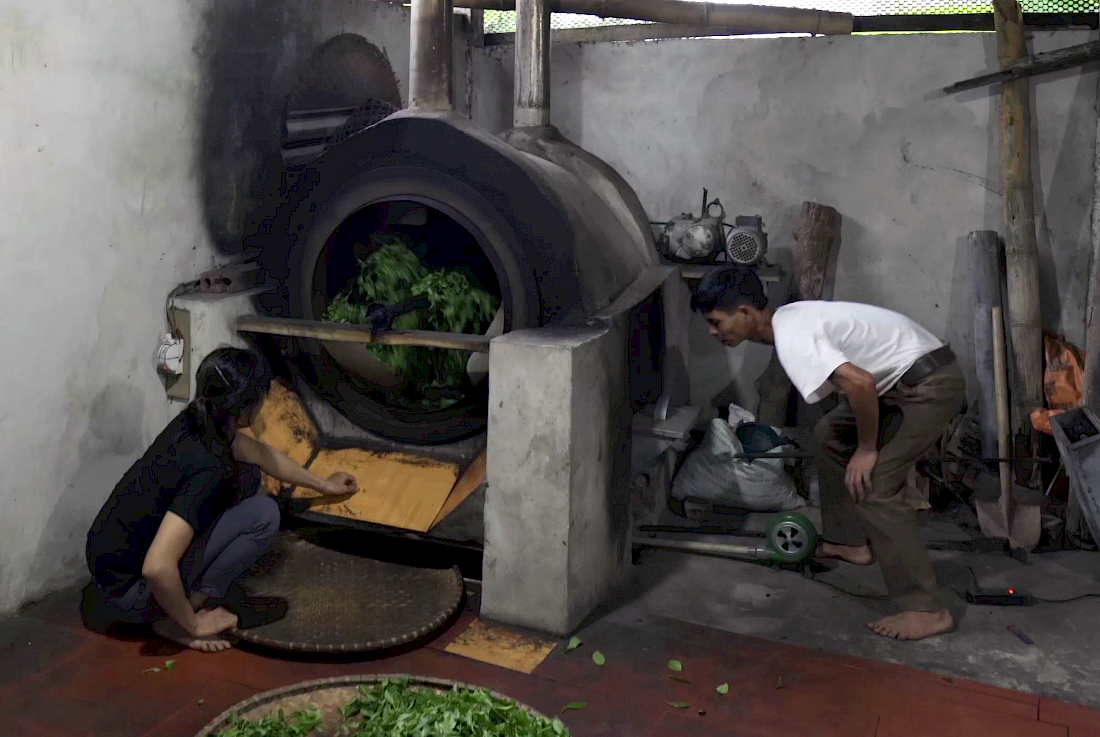
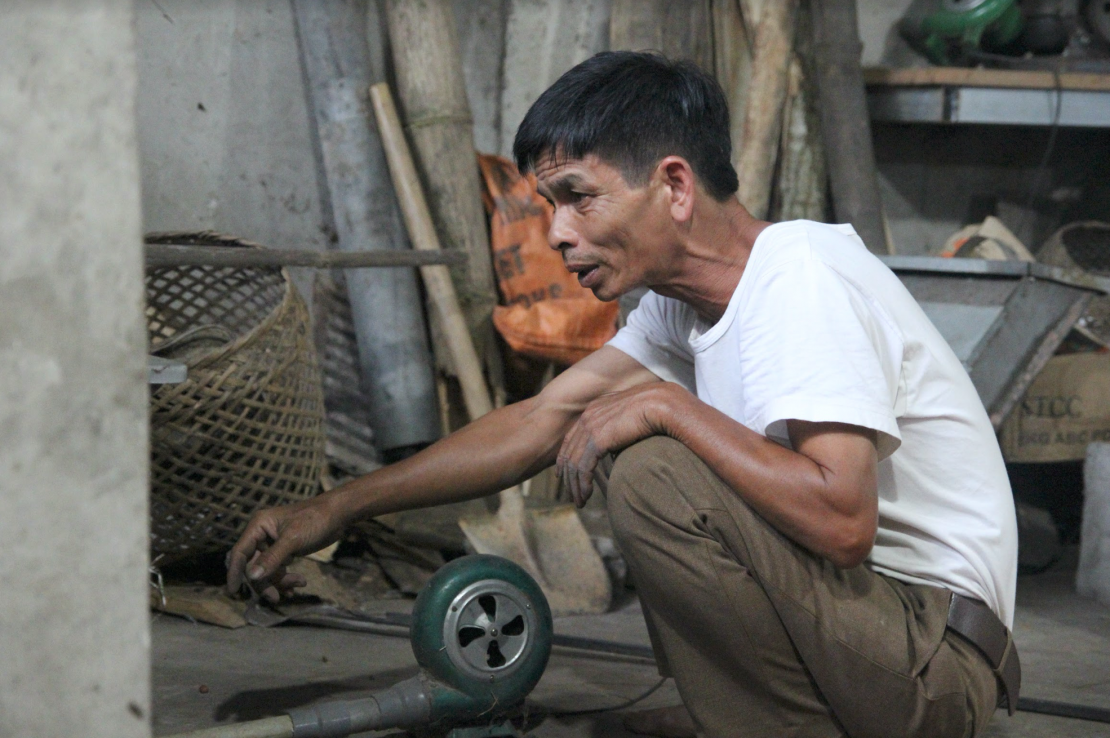
"The biomass gasification heating device is the same size as the traditional ones with just a few differences in its operations. However, during the burning process, I was surprised at the zero-smoke emission. The dried tea is neither stale nor dusty, and is of good quality", Mr. Ha happily commented on the device with improved technology.
"Most importantly, the fuel for burning is chopped wood. This source of biological waste is easy to find in the locality at a low cost, causing no increase in the selling price of our tea products", explained Ha.
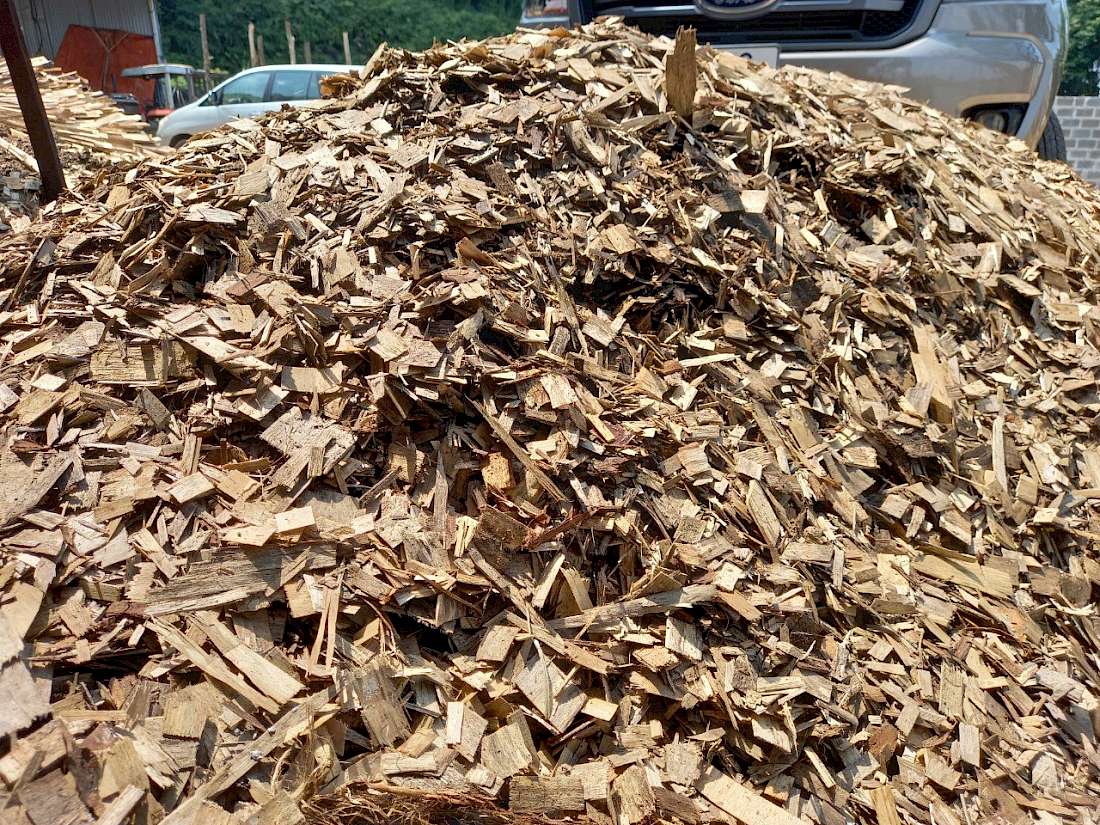
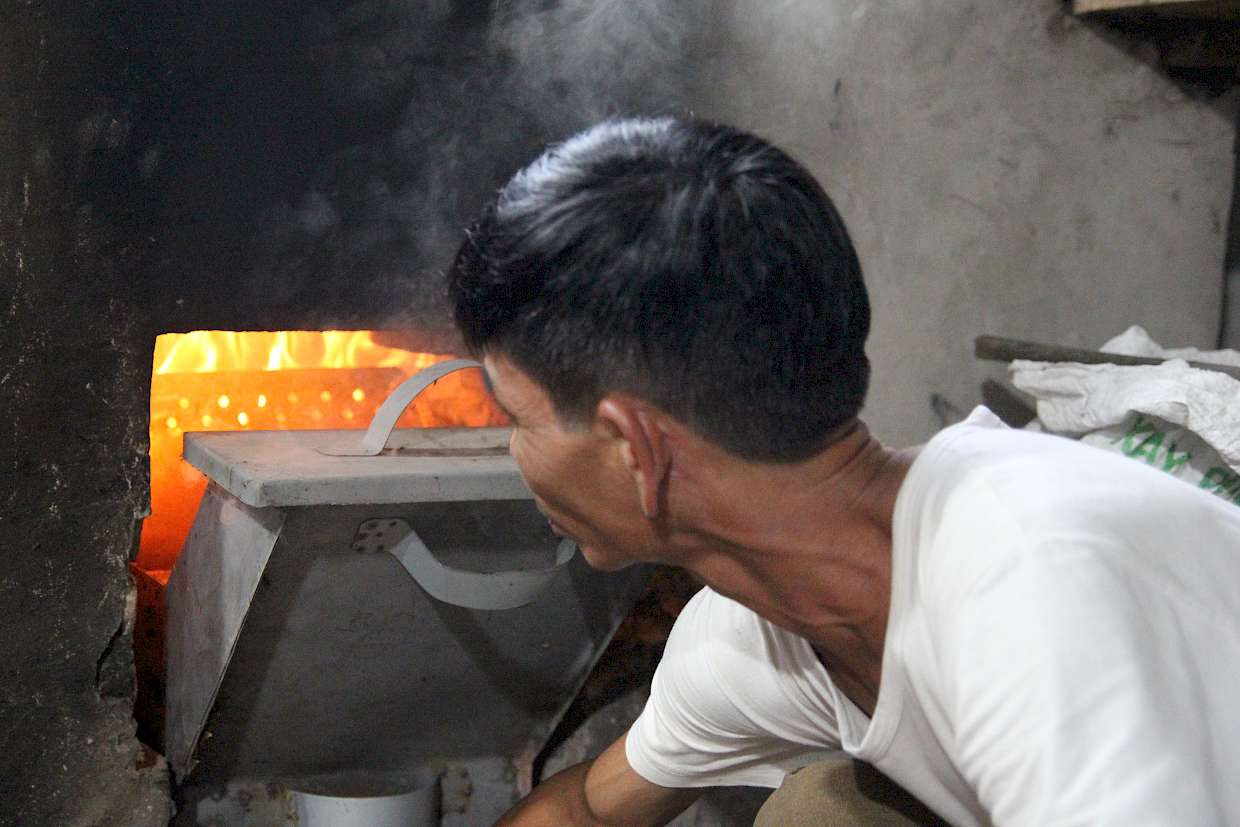
Ms. Vu Thi Thu Huong, Vice President of Thai Nguyen Cooperative Alliance, agrees that the operating mechanism of the VCBG equipment is highly suitable for local conditions. Thai Nguyen is a midland mountainous region with abundant forest products. Since many traditional villages are working on wood processing, the amount of waste is tremendous. A survey that was conducted earlier, shows that many forestry cooperatives leave tens of tons of waste in the environment, occupying a large amount of space. If left for a long time, the rot will cause greater pollution.
Using waste sources from agriculture and forestry in tea processing not only helps solve environmental problems but also generates a large number of jobs in stages such as processing, chopping fuel, and mechanical production and operation. A beneficial ecosystem for three linking chains: biomass suppliers, mechanics, and processing micro and small enterprises (MSE) will also be established, shared Ms. Huong.
By improving livelihoods and contributing to environmental protection, it is possible for VCBG to be commercialized for sustainable impact in localities.
As a small-scale household, Mr. Ha considers that the current application of VCBG technology in family production is suitable and helps improve household income.
"When processing tea with biomass gasification technology, we could sell the final product for three or four times more. The drying time is reduced by half, hence productivity increases. The waste from the burning process could then be used as biochar to grow flowers and vegetables. Most importantly, I could feel the cleaner air and see the improvement in the health of the whole family."
This year, Ha's clean tea product with a biomass gasifier has achieved three stars after being tested for quality in the province and winning the "Typical Industrial Product" award of the Trade Promotion Center, Department of Industry and Trade of Thai Nguyen province. He also actively promotes his products at local One Commune, One Product (OCOP) shows.
"Any household producers who want clean, high-quality tea products will absolutely want to know about the biomass gasification technology… People who already know about this technology will be excited and less stressed with their health concerns!"
The SWITCH-Asia BEST project implemented by Oxfam in Vietnam and CCS, promotes the application of continuous volumetric biomass gasification technology VCBG in MSEs, which will actively contribute to the process of renewable energy transition and waste treatment in Vietnam. The project is implemented in four provinces, namely, Lao Cai, Thai Nguyen, Tuyen Quang, and Yen Bai. This initiative expects to support 1.2 million people (50% of whom will be women) as direct beneficiaries with 2,500 agricultural processing MSE applying VCBG technology as their primary energy source. This should lead to the gasification of 1.4 million tons of biomass and contribute to a reduction of 2 million tons of CO2 emissions in the four provinces.
Learn more: http://khihoasinhkhoi.com/home
WATCH THE VIDEO
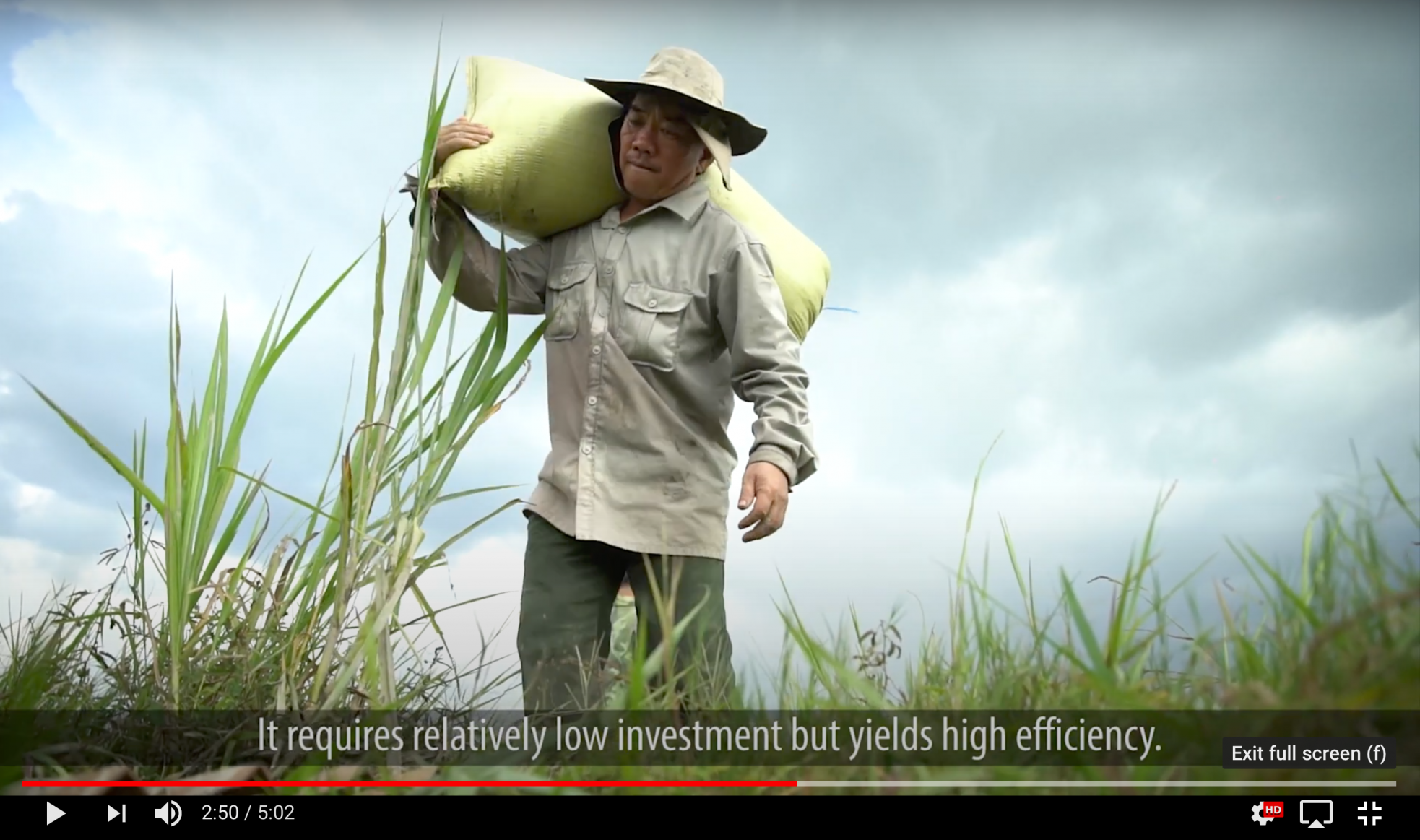
Photo and Video Credits:
© SWITCH-Asia Biomass Gasification Technology – Sustainable Energy Solution for Agri-Food Processing and Waste Management in Rural Areas of Vietnam


